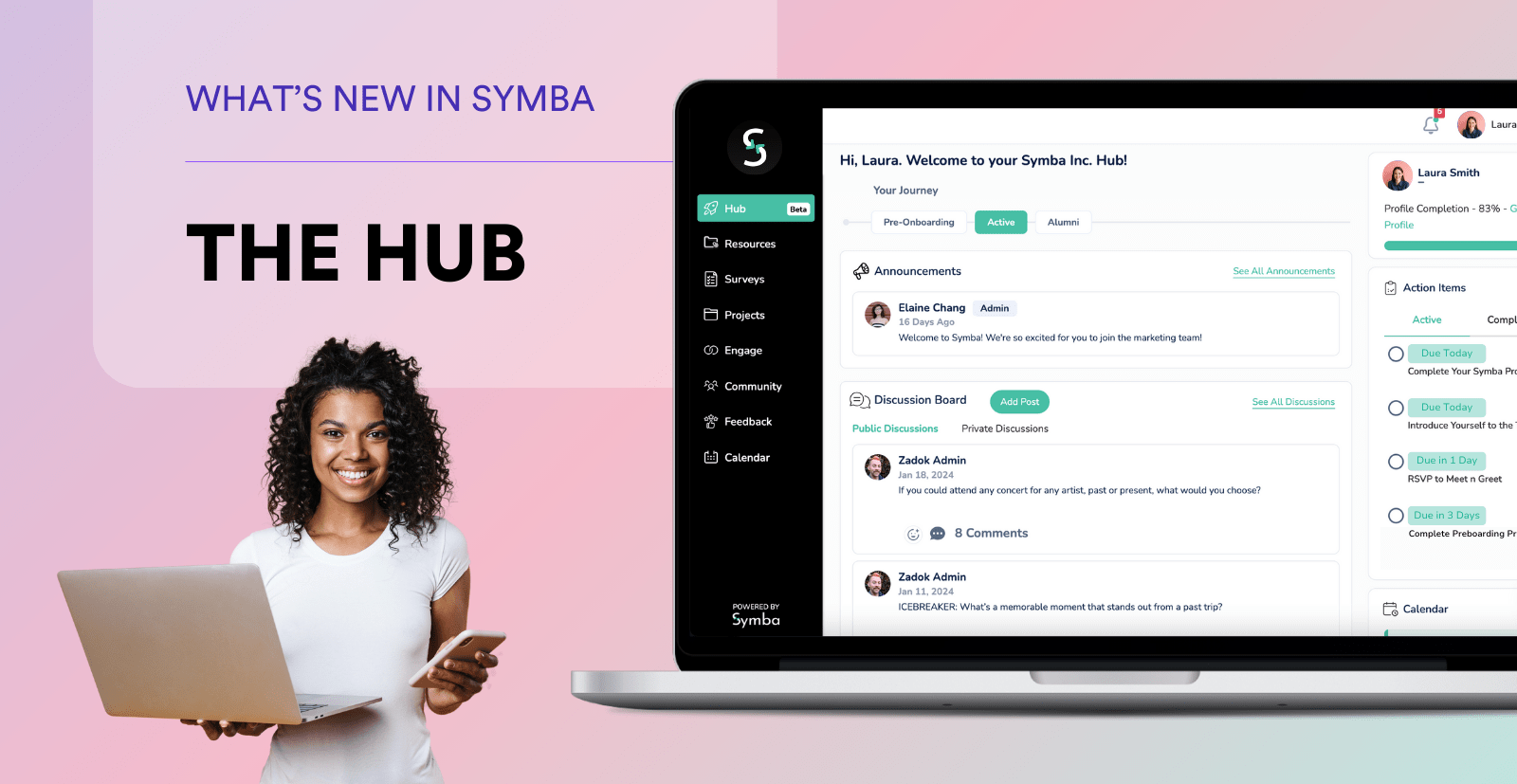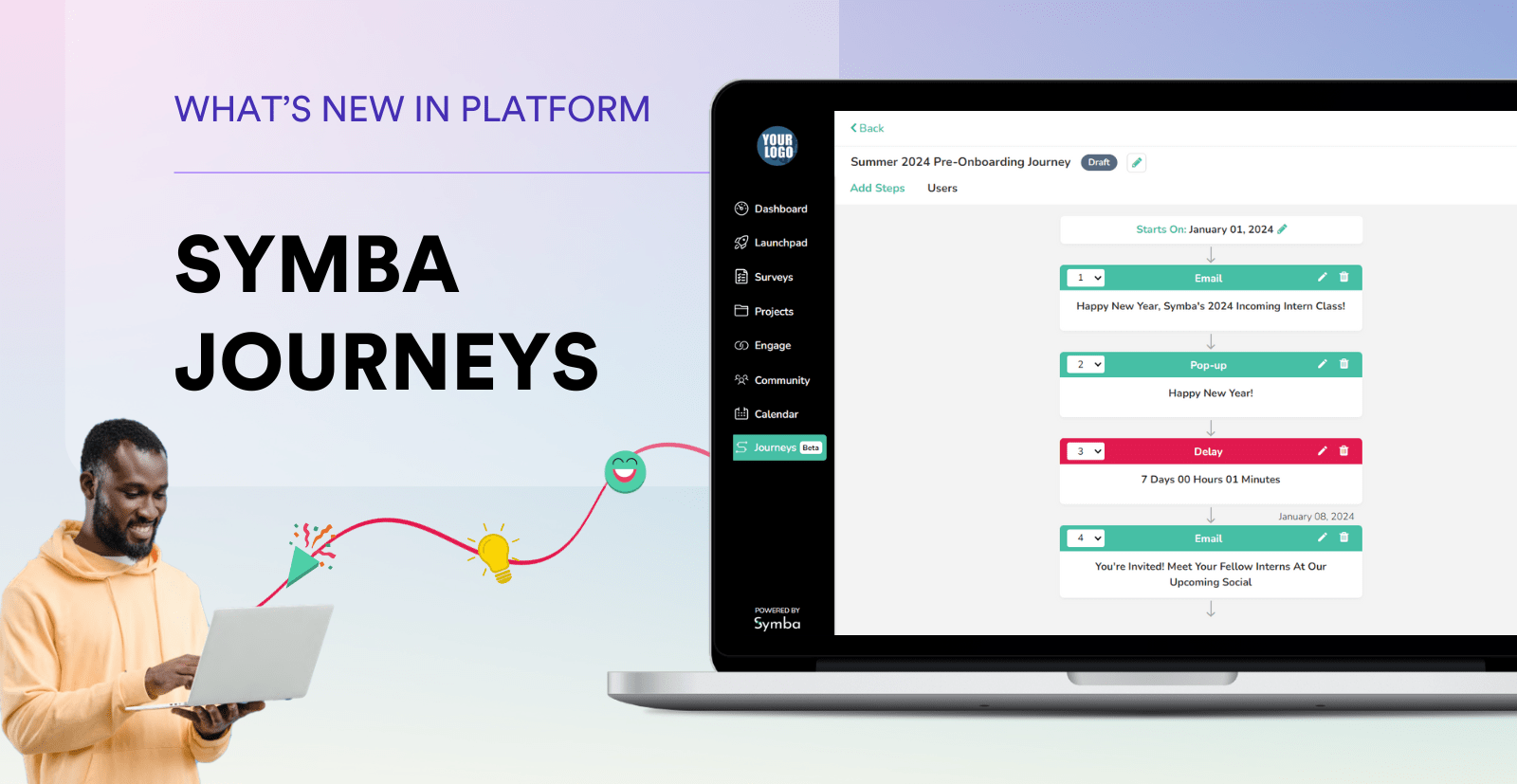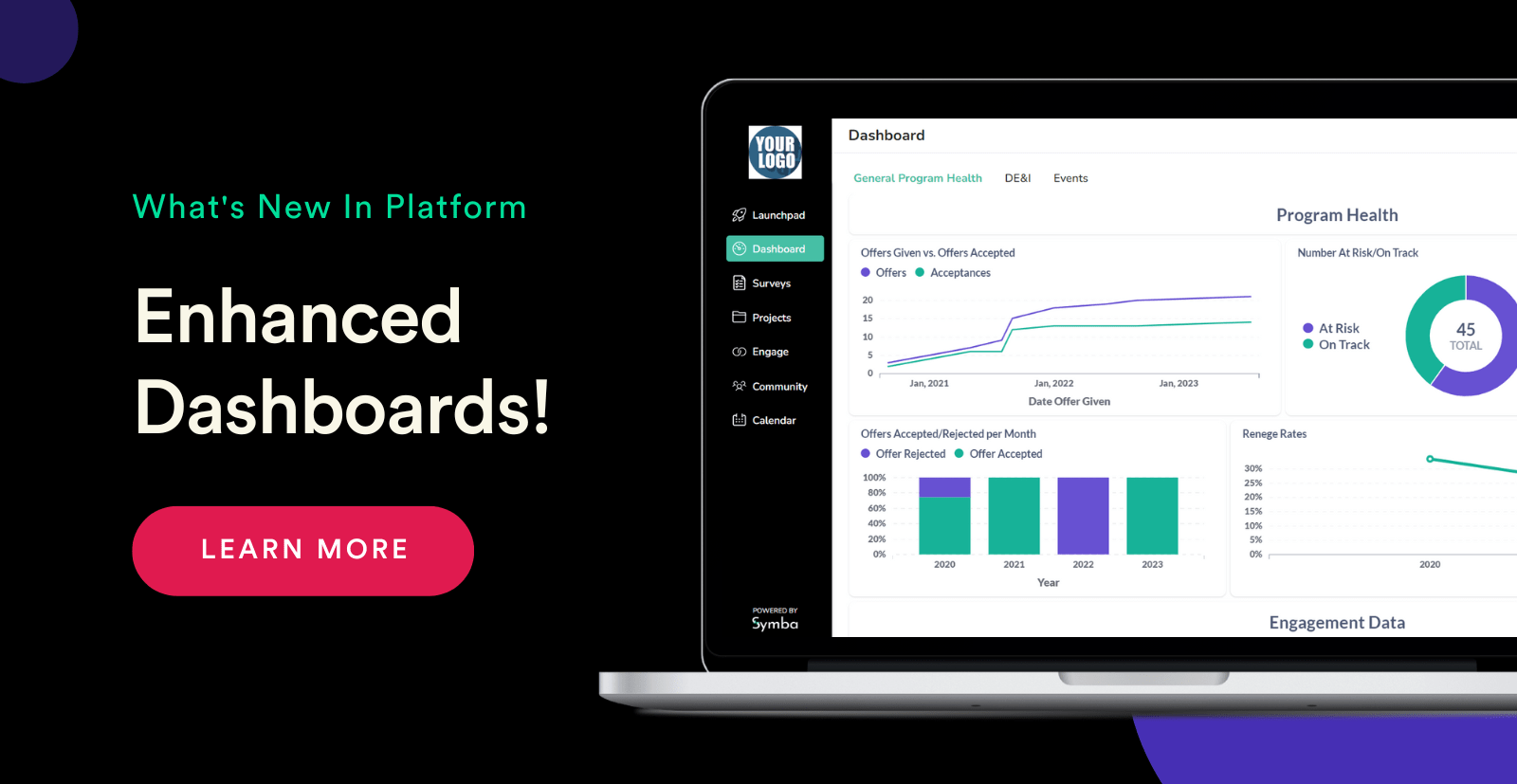Our entire team came together from around the U.S. to attend the 2021 ASU+GSV Summit, the world’s largest EdTech conference that brings together entrepreneurs, investors, and analysts in the digital education space. During the 3-day gathering in San Diego, Symba pitched live on the main stage, and out of over 700 startups, won first place in the Second Annual GSV Cup! This was a natural highlight for our team, but read on for the rest of Symba’s top takeaways from the summit. The EdTech sector is booming with innovation and has shown resilience since the onset of the pandemic. EdTech leaders are joining forces to rethink ways of working and learning, and it's just the beginning.
There’s a fresh approach to workforce development

“A fresh approach to workforce development” was Symba’s slogan for the week, and encapsulated the open-mindedness of the conference attendees. What was once a niche industry gathering has grown to a broader community of stakeholders in the future of EdTech. There was a buzz among the halls of the Manchester Grand Hyatt as EdTech leaders put their heads together to brainstorm better ways of learning and working. Through collaboration, and polite dissent, these conversations and connections fuel exponential progress in the EdTech space.
The typical educational framework is being challenged
Avenues to the workforce are shifting from the traditional K-12 to higher education to employment pathway -- particularly as employers embrace experience in skill-development programs and skill demonstration as qualification for a role. It is unrealistic to expect disadvantaged populations to beat an education to employment system that has historically been inaccessible due to factors like high costs of participation, required relocation, and a lack of mentorship and professional connections. While certification continues to hold value, providing alternative pathways to skill development and education that are equally credible will help to meet learners where they are. Employers also have an important role to play by ensuring that their job descriptions empower people from diverse backgrounds to be considered for job opportunities. As tools that support more flexible and accessible workforce development programs (like Symba, Forage, and Multiverse) advance and receive investor funding, EdTech leaders are expanding how they deliver training programs. The overarching theme of these innovative approaches to skill-development is that education should be decentralized and personalized.
Durable Skills are the future
Shifting away from the traditional educational framework and placing greater value in demonstrated skills calls for new ways of showcasing abilities. Durable skills, a research initiative spearheaded by America Succeeds, are the signature component here, and can adapt antiquated systems of demonstrating knowledge purely by certificates & diplomas. As automation continues to replace existing roles, durable skills like creativity and metacognition are increasingly valuable professional assets that must be intentionally fostered from K-12 and beyond. Social integration (or cohort learning groups) are on the rise and support the teaching of this skill base; leveraging a group learning environment allows for developing talent to build a network, practice interpersonal skills, and access mentorship.
New technologies, like VR, are making education more interactive than ever
Educators understand that everyone learns differently, and technology is enabling teachers and mentors to adapt their tools to educate learners in a variety of engaging styles like instructional music videos, AI texting to teach, and community learning platforms. VR/AR is another learning tool that program leaders are weaving into their talent development strategies to teach in a new and highly interactive way.
Remote learning opens access and saves employers $$$
When Symba was first getting started, we faced strong apprehension about the feasibility of delivering internship experiences online. Through customer satisfaction and renewal of our platform Symba has since demonstrated that valuable learning-by-doing experiences can be delivered remotely. It’s a natural transition for technology or marketing roles to go virtual. But with advancements in tech, like 3D learning, it is now easier for hands-on industries to reinvent their training experiences, increase accessibility, and scale their programs. This is not only valuable for the participants but a huge opportunity for organizations from a hiring perspective. Competition for recruiting talent is tough, and investing in early talent pipelines is key. Employers, to truly see the business value of a virtual program, measure the ROI for your talent development programs, tie it back to business outcomes, and be consistent with the datasets you’re measuring.
The EdTech Future is looking bright!
It was an exciting summit for EdTech leaders, entrepreneurs and investors to gather together to exchange ideas and form meaningful partnerships. Symba is thrilled to be a part of the wave of innovation in the space, and we look forward to attending next year!





